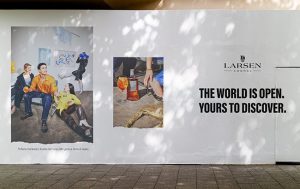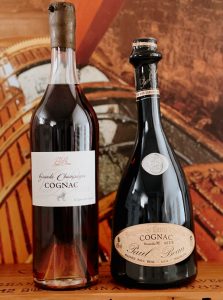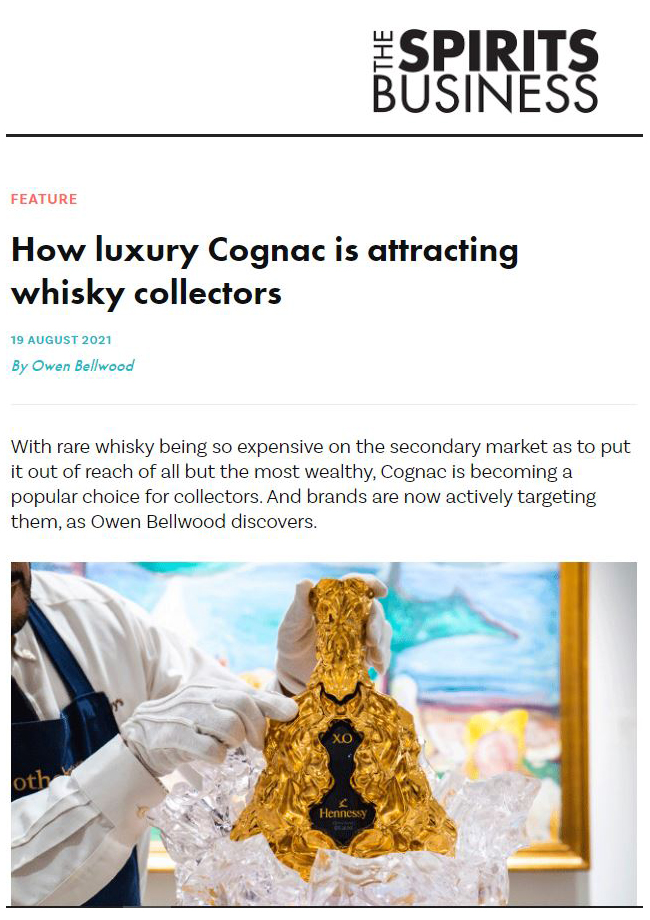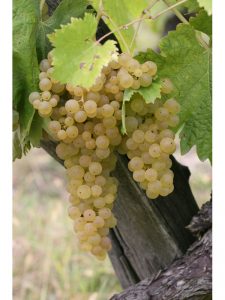Larsen Cognac Challenges The Stereotype
 A recent article in Trend Hunter explains how Larsen Cognac is challenging the traditional image of cognac with its new campaign. Cognac has traditionally been viewed as a niche product associated with older, affluent individuals. However, in recent years, cognac brands have worked hard to appeal to younger audiences by introducing innovative packaging and partnerships with popular culture and fashion icons. Their aim is to break down the perception that cognac is only for the elite and make it more accessible to a wider range of consumers.
A recent article in Trend Hunter explains how Larsen Cognac is challenging the traditional image of cognac with its new campaign. Cognac has traditionally been viewed as a niche product associated with older, affluent individuals. However, in recent years, cognac brands have worked hard to appeal to younger audiences by introducing innovative packaging and partnerships with popular culture and fashion icons. Their aim is to break down the perception that cognac is only for the elite and make it more accessible to a wider range of consumers.
Larsen Cognac is now following that trend by creating a campaign to reinvigorate their brand. Their new ‘Discover’ concept, has been designed to ‘challenge the idea of who cognac is for and how it can be consumed’. Mika Raukko, representing Larsen Cognac, said “The world is changing and so are the consumers. They expect brands to be more inclusive, diverse and authentic. The ‘Discover’ concept stems from the insight that making a new discovery in life makes us grow. And in order to make new discoveries you need to view the world with fresh eyes and be open to changing perspectives.”
There is no doubt that this resonates well with how people today are seeking new experiences that enrich their lives. And of course, all cognac brands will benefit from added exposure to a wider, younger audience as cognac becomes more mainstream. Not all cognac brands are the same so we must applaud Larsen’s call to be adventurous and try new offerings. We certainly class Hermitage as different from the rest!

 Paul Beau is a name synonymous with exceptional quality in cognac circles. The company dates back to the end of the 1800s, when Samuel Beau began to work the vineyards surrounding his Segonzac estate in Grande Champagne. When he died in 1914, the cognac house passed to his son, Paul, who together with his wife, grew the estate to over 100 hectares in size. They also modernized the buildings and distillery, whilst keeping the traditional alembic stills to ensure the quality of their produce. In 1977 they decided to sell directly under their own label – and the Paul Beau brand name was created.
Paul Beau is a name synonymous with exceptional quality in cognac circles. The company dates back to the end of the 1800s, when Samuel Beau began to work the vineyards surrounding his Segonzac estate in Grande Champagne. When he died in 1914, the cognac house passed to his son, Paul, who together with his wife, grew the estate to over 100 hectares in size. They also modernized the buildings and distillery, whilst keeping the traditional alembic stills to ensure the quality of their produce. In 1977 they decided to sell directly under their own label – and the Paul Beau brand name was created. The Spirits Business has once again been looking at the astronomical prices of aged whisky compared to cognac and their research tells them that the Collectors market is looking further afield. Jonny Fowle of Sotheby’s commented “… it does seem like there is room for vintage, aged spirits like Cognac to find favour with people who are maybe unhappy with the price of Scotch whisky.”
The Spirits Business has once again been looking at the astronomical prices of aged whisky compared to cognac and their research tells them that the Collectors market is looking further afield. Jonny Fowle of Sotheby’s commented “… it does seem like there is room for vintage, aged spirits like Cognac to find favour with people who are maybe unhappy with the price of Scotch whisky.” The
The